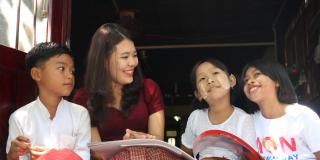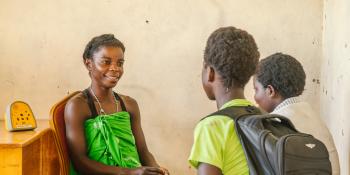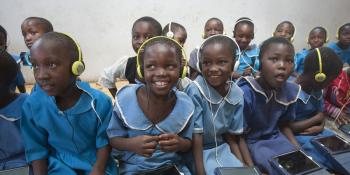
We've worked in Myanmar since 2014, building healthy communities and strengthening inclusive education systems.
Health programme
Myanmar is currently facing a complex crisis involving political unrest, human rights challenges, and the effects of the COVID-19 pandemic. These challenges have disrupted basic healthcare services across the country, with potentially long-term consequences for the health and well-being of its people. Notably, there is limited accessibility to youth-friendly sexual and reproductive health services, alongside concerning reports of escalating sexual and gender-based violence.
Aligned with VSO's global health strategy, our health program in Myanmar is focused on empowering adolescents and youth, including those with disabilities, to assert their sexual and reproductive health rights and to combat gender-based violence. Additionally, we have integrated select components from mental health and psychosocial support services (MHPSS) into our initiatives, recognizing the importance of addressing mental health needs alongside physical health.
Education programme
We're overcoming barriers to quality learning for all.
VSO’s inclusive education programme aims to ensure that marginalised and vulnerable children and youth gain equal opportunities and well-being through education. VSO supports community-based interventions to provide learning opportunities for children and young people affected by crisis, including:
- Access to quality professional development opportunities for teachers and educators, with a focus on gender and disability and early grade numeracy
- Strengthening the resilience of communities by building their capabilities to address shocks and stresses and to ensure continuity of education and learning
- Greater parental and family participation in children’s learning
Contact us
If you are interested in supporting our work, or if you have another query, get in touch:
Address: No.1 Kantkaw Myaing (1) Street, Parami Avenue, Ward 8, Yankin Township, Yangon, Myanmar.
Email: vso.myanmar@vsoint.org
Find out more about our work in:

Inclusive sexual and reproductive health and rights
Supporting the most vulnerable people to realise their sexual and reproductive health and rights.

Education system strengthening
Developing inclusive education systems that leave no child behind.
